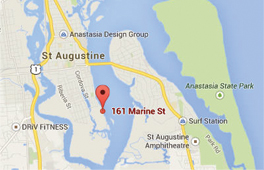Top 7 Physical Alzheimer’s Symptoms
Top 7 Physical Alzheimer’s Symptoms
Here are seven physical signs of Alzheimer’s disease that you should know about:
1. Difficulty with Familiar Tasks
People with Alzheimer’s have trouble completing tasks that they could do without conscious effort before the onset of their illness. I’ll never forget the man who told me that he first became aware something was really and truly wrong with his mom when she put litter in the coffee maker instead of coffee grounds. If a senior starts to have trouble operating things like the TV remote control or the microwave oven, you may want to consider arranging a memory test.
2. Repetitive Behaviors
People with Alzheimer’s may forget that they’ve just done something, so they do it again, again and again. For example, one of my elderly family members with dementia, was a smoker. She would light one cigarette, take a few puffs, and then set it in the ashtray. Then she’d light another and do the same. Sometimes someone would find her with three or four cigarettes lit at once! Admittedly, this is an extreme example, but subtler repetitive behaviors can occur in people with earlier stages of the disease. Is a senior checking to make sure that the front door is locked after already having checked it a few minutes before? Is she feeding a pet she just fed an hour ago? Is she cleaning her glasses again and again? These are more commonplace examples of the types of repetitive behaviors people with Alzheimer’s will exhibit.
Incidentally, the British Alzheimer’s Society says that other causes besides mere forgetfulness can make people with Alzheimer’s exhibit repetitive activities and movements such as pacing, or opening and closing drawers: “This repetition may be because the person doesn’t remember having done it previously, but it can also be done for other reasons such as boredom.”
3. Taking Shorter Steps and Decreased Fine Motor Skills
While loss of fine motor skills can be a symptom of a number of ailments, including Parkinson’s disease, it is also an Alzheimer’s symptom. Someone who is developing Alzheimer’s may find it difficult to accomplish those tricky little things we do with our hands that most of us take for granted. For example, he may have trouble writing neatly, buttoning his shirt, tying his shoes, or threading a needle.
There are several causes for this loss in motor skill that some people with Alzheimer’s experience. For some tasks, the ones we can do “automatically,” our brain has developed what’s called muscle memory. Just as people with Alzheimer’s can lose memories of people and events, they can lose muscle memories. Motor skills can also be lost when a part of the brain that sends signals to muscles is damaged. Studies show that changes in gait when walking such as taking shorter steps with a shift to one side is an early hallmark of the disease. Additionally, another contributor to motor problems can be numbness in the extremities, which is another common symptom of Parkinson’s disease, but which can also occur in people with Alzheimer’s.
4. Getting Lost and Wandering
According to the Alzheimer’s Association, 6 in 10 people with dementia wander. This can mean getting lost in familiar places, or an insatiable desire to walk away to somewhere else. By the time a senior’s wandering is severe, it will have already become obvious that something is wrong, but more mild incidents of wandering may be among the earlier signs of Alzheimer’s. A senior might arrive late for an appointment without an explanation, start to lose her way around the supermarket, or get lost while driving in her hometown.
5. Increase in Daytime Napping
The damage to the brain that takes one’s memory can also take away motivation and drive. Research showsthat people with Alzheimer’s disease may lose interest in life and become inactive. Formerly active, involved and mentally healthy people may begin to sit in a dark room watching television endlessly, or seem as though they are constantly fatigued and disinterested in life. Another sign of the lethargy brought on by Alzheimer’s is the increase in daytime napping, which brings us to our next physical sign of the disease.
6. Insomnia
Alzheimer’s often causes sleep changes and sleeping problems. According to the Alzheimer’s Association, sleep changes from Alzheimer’s disease vary from person to person, but there are some trends. Alzheimer’s sufferers may have trouble sleeping at night. Conversely, they may sleep much more than they used to. Their day/night cycle may also get out of whack, causing what’s known as Sundowners Syndrome. As mentioned above, a sudden increase in daytime napping can also be an indication of the disease. But experts warn that it’s normal for older adults to have changes in sleep, so don’t become alarmed if a senior develops unusual sleeping patterns or changes, but do try to assure that the senior’s physician is made aware.
7. Poor Grooming, Hygiene and Dressing Habits
People with Alzheimer’s, whether by forgetfulness, or due to the apathy we discussed above, will often neglect to take care of their hygiene and appearance. If you recognize that a formerly tidy or smartly dressed senior is now disheveled, this could be a sign of Alzheimer’s or dementia. Take note if a senior begins to wear the same clothes every day, or if you see that he has suddenly stopped shaving, or if she is no longer brushing her hair. Chances are, something is amiss.
Concerning Changes? Don’t Panic. See a Doctor.
Each of the physical signs we mentioned above can be associated with age related issues besides Alzheimer’s. Don’t take any of these signs alone as a reason to be alarmed, but don’t ignore them, either.
None of these symptoms alone are strong evidence of Alzheimer’s disease or other kinds of dementia, but any one of them are a reason for the senior to visit a physician and get checked out.
Whatever is causing a concerning change, it’s best that it’s detected early.








